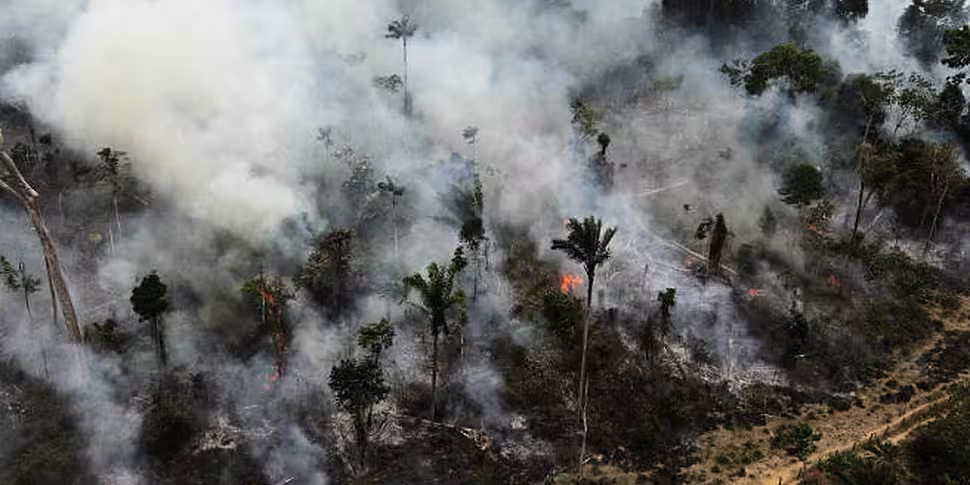Humans have used up all of the resources that the Earth can regenerate in a year, five days earlier than last year.
Today marks the world's earliest 'overshoot day' yet, which marks the date when humanity’s demand for ecological resources - such as fuel and forestry - and services in a given year exceeds what Earth can regenerate in that year.
The deficit is maintained by liquidating stocks of resources and accumulating waste, primarily carbon dioxide in the atmosphere.
According to the project, we use the resources of almost 1.6 planets by putting out more carbon dioxide emissions than the forests and oceans can absorb and cutting down forests more quickly than nature can replenish them.
Overshoot day is calculated by the Global Footprint Network; every year they sum up the number of days of that year that Earth’s biocapacity (the amount of ecological resources Earth is able to generate that year) suffices to provide for humanity’s ecological footprint. The remainder of the year corresponds to global overshoot.
Earth Overshoot Day is computed by dividing the planet’s biocapacity by humanity’s Ecological Footprint. This ratio is multiplied by 365 to get the date when Earth Overshoot Day is reached.
Dr. Mathis Wackernagel, President of Global Footprint Network, explained how the date is measured:
“We look at all the resource demands of humanity that compete for space, like food, fiber, timber, et cetera, then we look at how much area is needed to provide those services and how much productive surface is available."
Today, the carbon footprint makes up 60% of humanity’s total ecological footprint. It is also the fastest-growing part of the ecological footprint.
One hundred years ago, the carbon footprint was a very small fraction of the overall ecological footprint. Since 1970, our total carbon footprint has more than doubled (in total global hectares).
It takes 1.6 earths to support humanity’s demand on nature. Today is Earth #Overshoot Day! https://t.co/jcxLNzmQZ1 pic.twitter.com/OpEdfw1JvC
— WWF (@WWF) August 8, 2016
Today, the carbon footprint makes up to 60% of humanity’s total ecological footprint and it is increasing year after year. Since 1970, our total carbon footprint has more than doubled globally.
Dr. Wackernagel said that if we change the way we are living it is possible to meet the end of year goal for Earth Overshoot Day and reduce our carbon footprint.
“The big problem is not that our deficit is getting bigger, it is that it cannot be maintained in the long-run.
"The good news is that it is possible with current technology, and financially advantageous with overall benefits exceeding costs."
The concept of Earth Overshoot Day was first conceived by Andrew Simms of the New Economics Foundation, which partnered with Global Footprint Network in 2006 to launch the first global Earth Overshoot Day campaign. At that time, Earth Overshoot Day fell in October but the date has been earlier every year since.









